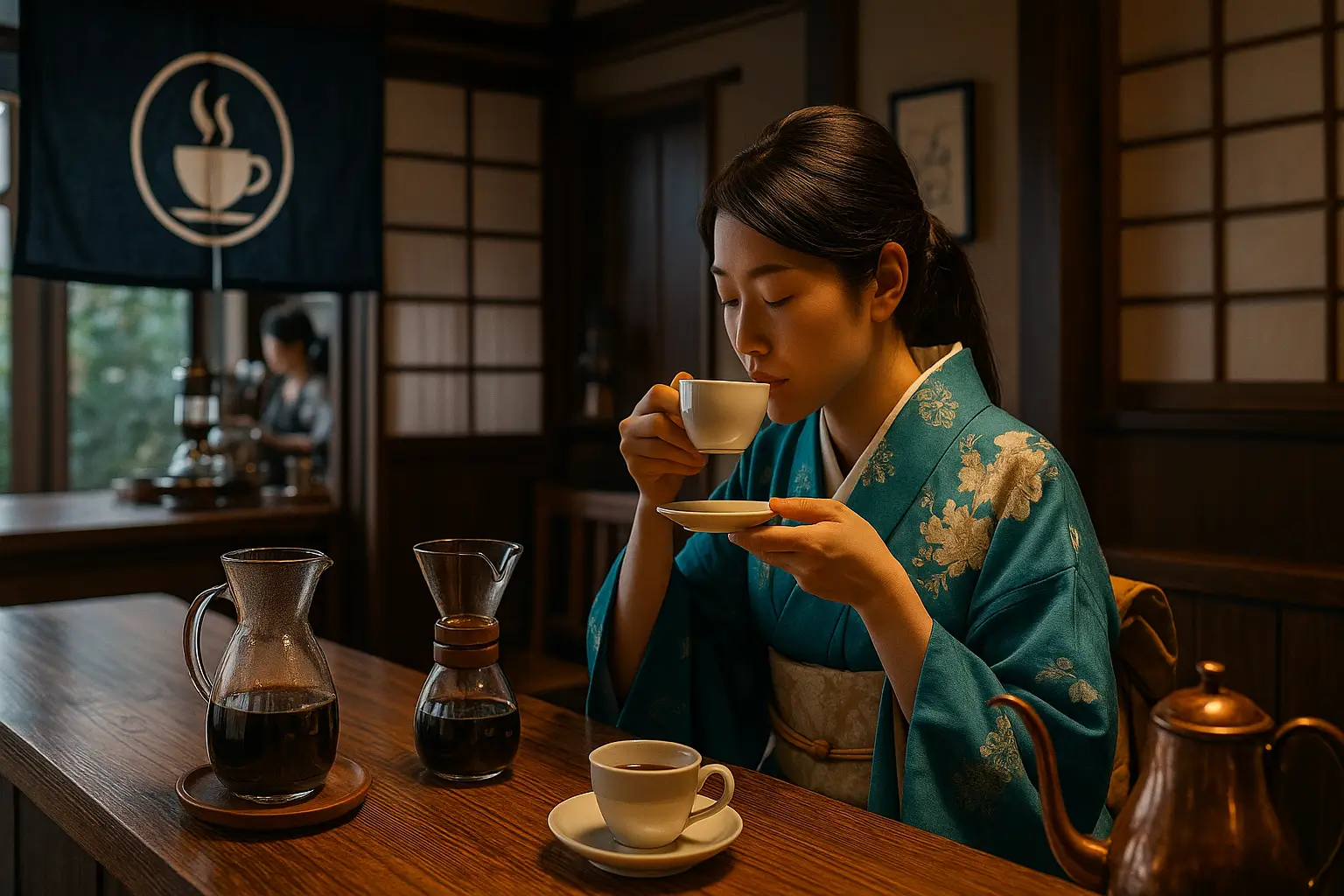When you think of traditional Japanese beverages, green tea likely comes to mind. But in recent decades, Japan has embraced coffee with remarkable enthusiasm and creativity. From canned coffee in vending machines to meticulously crafted pour-overs, Japan’s coffee culture is a fascinating blend of precision, innovation, and deep appreciation. In this article, we explore why Japan loves coffee so much—and how it became one of the most unique and respected coffee scenes in the world.
The Introduction of Coffee to Japan
Coffee first arrived in Japan in the 17th century through Dutch traders at the port of Nagasaki. However, it didn’t gain widespread popularity until the late 19th century, when Japan began modernizing during the Meiji era. The country opened its borders to Western influence, and coffee was one of the many cultural imports embraced by a younger, urban generation.
The first coffee shop in Japan, Kahiichakan, opened in Tokyo in 1888. Though it closed within a few years, it sparked a curiosity that would steadily grow into a national fascination.
Post-War Influence and Globalization
After World War II, American military presence and Western influence helped to popularize coffee in Japan. Coffee began to represent modernity, progress, and internationalism. By the 1960s and 70s, the Japanese economy was booming, and coffee consumption surged along with a growing middle class.
Japanese companies began developing their own coffee innovations, including:
- Canned coffee (first launched by UCC in 1969)
- Coffee vending machines
- Convenience store brews
- Ready-to-drink cold coffee products
Today, Japan is one of the largest coffee-importing countries in the world, with an incredibly diverse and rich coffee scene.
Precision and Craftsmanship: The Japanese Approach
One of the reasons coffee is so revered in Japan is the cultural emphasis on craftsmanship, attention to detail, and hospitality. This ethos aligns perfectly with specialty coffee culture.
Hallmarks of Japanese coffee preparation:
- Use of manual brewing methods like pour-over (especially V60 and Nel drip)
- Emphasis on clean, balanced flavors
- Focus on temperature, timing, and technique
- Quiet, slow, and meditative brewing processes
- Minimalist and intentional café aesthetics
In Japan, making coffee is often considered an art form, and baristas are admired for their discipline and mastery—similar to sushi chefs or tea masters.
The Rise of Kissaten Culture
A kissaten is a traditional Japanese coffeehouse that emerged in the early 20th century. These nostalgic, retro cafés offer a calm and refined environment, serving carefully brewed coffee alongside toast, cakes, and jazz music.
Features of kissaten:
- Dim lighting and vintage décor
- Meticulously brewed coffee, often using siphons
- Handwritten menus and soft background music
- Friendly, personalized service
Even with the rise of modern cafés, kissaten remain beloved for their timeless atmosphere and hospitality.
Coffee and Convenience: Vending Machines and 7-Eleven Culture
Japan’s obsession with convenience has deeply influenced its coffee habits. You can find hot and cold coffee in vending machines almost everywhere—from city corners to mountain trails. These machines are restocked frequently and maintain high standards of quality.
Convenience store coffee (konbini coffee):
- Available in stores like 7-Eleven, Lawson, and FamilyMart
- Freshly ground and brewed on-demand
- Often less than ¥150 (~$1 USD)
- Surprisingly high quality for the price
This model has democratized access to decent coffee and made it a daily habit for millions.
Specialty Coffee Scene and Innovation
While convenience dominates, Japan also boasts a thriving third-wave coffee scene, especially in cities like Tokyo, Kyoto, and Osaka. Specialty cafés are known for their:
- Single-origin beans
- In-house roasting
- Scientific brewing methods
- Sleek, minimalist design
Notable Japanese roasters and brands include:
- Onibus Coffee (Tokyo)
- Blue Bottle Japan (U.S. origin, Japanese style)
- % Arabica (Kyoto, now global)
- Maruyama Coffee (Nagano)
Many of these cafés emphasize sustainability, transparency, and traceability, mirroring global trends with a distinctly Japanese twist.
Coffee as a Lifestyle
For many Japanese people, coffee is not just a drink—it’s a lifestyle symbol. It represents:
- A moment of pause in a busy society
- Attention to detail and quality
- Cultural refinement
- A bridge between East and West
Whether it’s a businessman sipping canned espresso on a bullet train or a university student studying in a minimalist café, coffee fits seamlessly into Japanese life.
Final Thoughts: A Culture in Every Cup
Japan’s love for coffee is rooted in its values—precision, hospitality, and appreciation for the small moments. It has transformed coffee into something both deeply practical and profoundly artistic.
If you ever visit Japan, don’t miss the chance to experience both ends of the spectrum: grab a can from a vending machine, then spend a slow afternoon in a kissaten or third-wave café. You’ll see firsthand why Japan’s coffee culture is among the most admired in the world.
